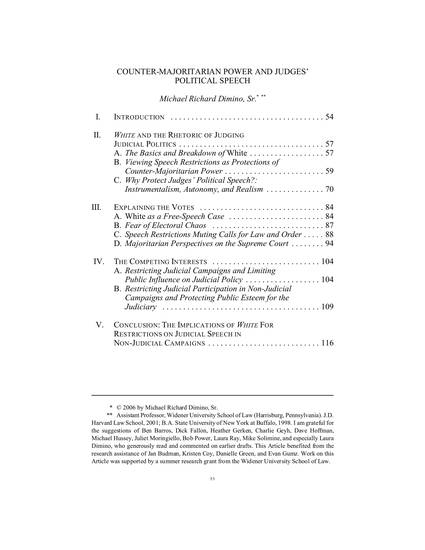
Article
Counter-Majoritarian Power and Judges' Political Speech
Florida Law Review
(2006)
Abstract
Judges and judicial candidates are regularly restricted in their political speech and association by two categories
of ethical canons that have only recently come under constitutional examination: those that restrict the ways judges conduct their own campaigns, and those that restrict judges’ participation in other aspects of politics, including non-judicial campaigns. The first category includes, among other prohibitions, bans on soliciting campaign contributions or making pledges, promises, or commitments of on-the-bench conduct. The second category includes restrictions on taking positions of leadership within political parties, contributing to other candidates’ campaigns, and publicly indicating support for (or opposition to) a candidate for non-judicial office. Whether any of these restrictions on political activity will survive review in future cases depends on a judicial assessment of the importance of the interests they serve—advancing judicial independence and the confidence of the public in blind justice—and the weighing of those interests against judges' rights of free expression.
Publication Date
2006
Citation Information
Michael R Dimino. "Counter-Majoritarian Power and Judges' Political Speech" Florida Law Review Vol. 58 (2006) p. 53 Available at: http://works.bepress.com/michael_dimino/22/
